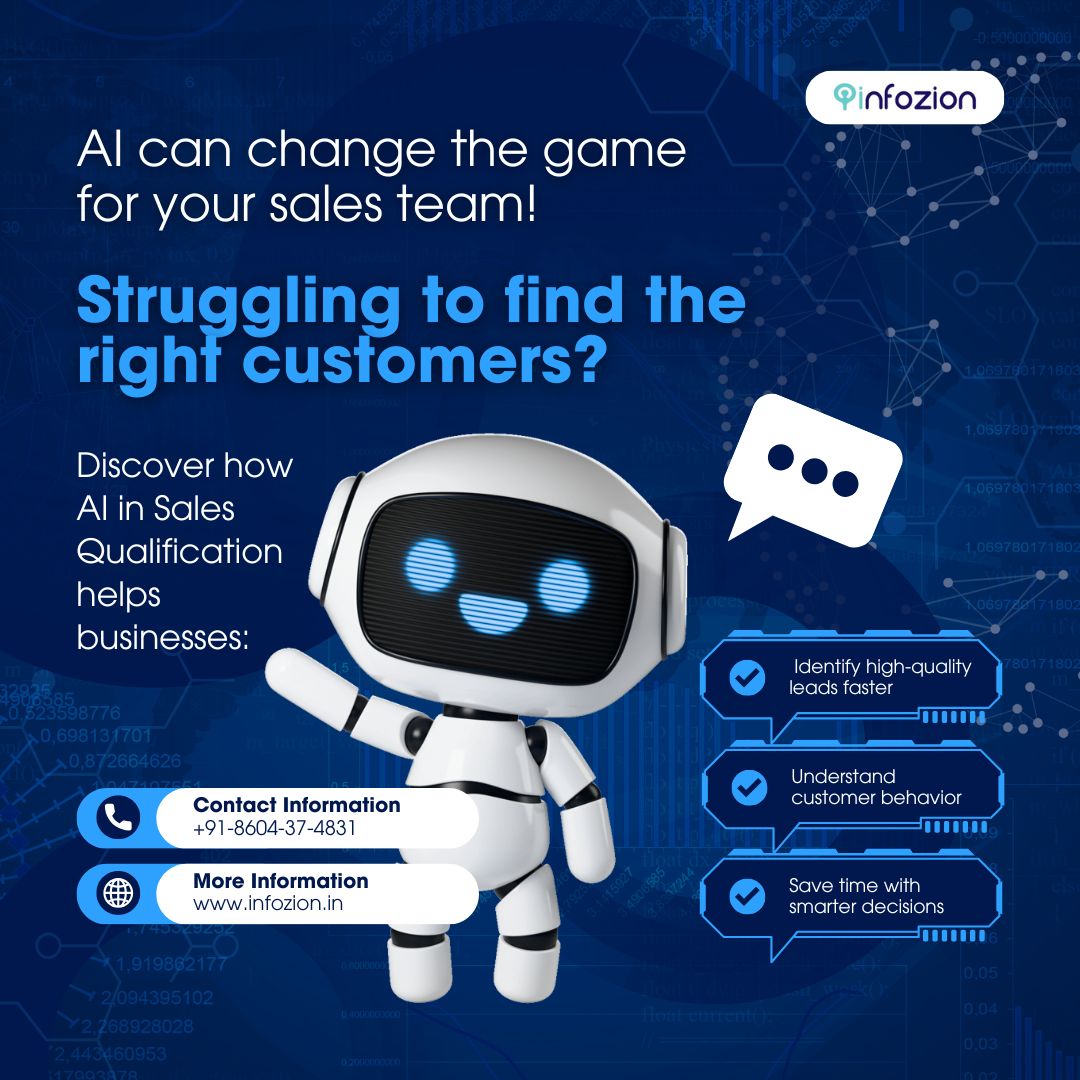How AI Improves the Sales Qualifications Process

How AI Improves the Sales Qualifications Process
How AI Improves the Sales Qualifications Process
What Is Sales Qualification?
Before we talk about how AI helps, let’s first understand what “sales qualification” means.
Sales qualification is the process of finding out if someone is the right customer for a product or service. It’s like asking, “Is this person really going to buy what we’re selling?” Sales teams do this so they don’t waste time talking to people who are not interested.
Think of it like this: If you’re selling cookies, you wouldn’t want to offer them to someone who’s allergic to chocolate, right? That’s what sales qualification is—making sure you’re talking to the right people.
Enter AI: The Super Helper
Now imagine if you had a super smart robot friend who could look at hundreds of people and tell you which ones love chocolate cookies. That’s what Artificial Intelligence, or AI, can do for salespeople.
AI uses data (lots of information) and smart thinking to help sales teams work faster and smarter. It looks at patterns and tells the team, “Hey, these are the people who are most likely to buy your product.”
Why Is Sales Qualification Hard Without AI?
Before AI, salespeople had to spend a lot of time asking questions and guessing who might be interested. They would:
- Look through spreadsheets
- Send emails manually
- Call lots of people, even if they might not be a good fit
- Take days or even weeks to know if someone was serious
This took a lot of time and energy, and it wasn’t always correct. Many good leads (potential buyers) were missed, and a lot of time was spent on people who were never going to buy.
How AI Makes It Easier
1. Finds the Right Customers Faster
AI can quickly check thousands of names, emails, and behaviors to find out who is most likely to say “yes” to your product. It’s like a giant flashlight that finds only the best treasure in a big dark cave.
2. Understands What Customers Want
AI doesn’t just look at names. It looks at what people do—like if they visit your website, read your emails, or ask questions. AI learns from that and understands what they might want.
3. Saves Time and Energy
Because AI does the hard work, sales teams can focus on talking to people who are really interested. This saves them from wasting time chasing the wrong people.
4. Gives Smart Suggestions
AI can say things like:
- “This person might be ready to buy—call them now!”
- “Wait a bit before following up with this one.”
- “This company bought from you before—reach out again!”
These suggestions help salespeople take better steps and close more deals.
Real-Life Example: How Companies Use AI
Let’s say a company sells online courses. With AI, they can track who visits the website, who clicks on the “Buy Now” button, and who watches their videos. AI collects this information and finds patterns.
Then it tells the sales team, “Here are the top 50 people most likely to buy a course this week.” The sales team doesn’t have to guess anymore—they just call or email those 50 people.
This leads to more sales, happier teams, and smarter use of time.
AI Also Helps with Follow-Ups
Many sales are lost just because someone forgot to follow up. AI can send automatic reminders, emails, or even chat messages to customers.
Let’s say someone was interested but didn’t buy right away. AI can remind the sales team after a few days to check back in. It can even send a special offer to make the customer more interested.
AI + Humans = The Best Team
Some people worry that AI will take jobs away, but that’s not true. AI doesn’t replace salespeople—it helps them do better.
Sales still needs the human touch—like building trust, answering tricky questions, and listening carefully. AI just handles the boring and busy work so humans can do what they’re best at.
Tips to Use AI for Sales Qualification
If you’re thinking about using AI in your business, here are some simple tips:
1. Use Tools That Work with Your CRM
Choose AI tools that can talk to your current systems like HubSpot, Salesforce, or Zoho. This way, your data stays in one place.
2. Start Small
You don’t have to use all the features right away. Start with something simple—like AI that scores your leads (tells you who’s hot and who’s not).
3. Work with Experts
Need help setting it up? Teams like Infozion Technologies help businesses build smart AI-powered systems that improve sales workflows. They make sure it’s easy to understand and use.
What the Future Looks Like
AI is changing the game. In the future, we’ll see even smarter tools that can:
- Talk directly to customers using voice or chat
- Predict what a customer will want before they even ask
- Help salespeople close deals faster than ever before
According to McKinsey & Company, companies that use AI in their sales process can grow revenue by up to 20%. That’s a huge win!
Final Thoughts
AI is like having a smart assistant who works 24/7, never gets tired, and always has your back. It helps you find the right customers, understand them better, and close more sales with less effort.
If you’re still doing sales the old way, now’s the time to explore how AI can make it easier, faster, and smarter.
Let your team do what they do best—connect with people—while AI handles the heavy lifting behind the scenes.





